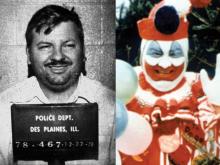
Daniel Ellsberg (left)
The WikiLeaks disclosures of top-secret government documents recall the time in 1971 when the intrepid Daniel Ellsberg released the “Pentagon Papers” to The New York Times to hasten the end of the Vietnam War.
by Don Fulsom
In the summer of 1971, The New York Times published the "Pentagon Papers,” a top-secret Defense Department study critical of U.S. war efforts in Vietnam. The huge report had been methodically stolen and duplicated by Daniel Ellsberg, a former Pentagon analyst who had turned against the war. He leaked copies to Times reporter Neil Sheehan.
Newly declassified tapes show President Richard Nixon first realized the seriousness of the leak during a June 13th noontime telephone call from National Security Advisor Henry Kissinger’s top deputy, Alexander Haig:
Haig: This goddamn New York Times expose [is] of the most highly classified documents in the war.
Nixon: Oh, that! I see! I didn’t read the story. You mean that was leaked out of the Pentagon?
Haig: This is a devastating security breach of the greatest magnitude of anything I’ve ever seen.
By the time Nixon talked to Kissinger himself a short time later, the President was climbing the walls over the leak:
Nixon: That Henry, that to me is just unconscionable, this is treasonable action on the part of the bastards that put it out.
Kissinger: Exactly, Mr. President.
Nixon: Doesn’t it involve secure information, a lot of other things? What kind of—what kind of people would do such things?
Kissinger: It has the most—it has the highest classification, Mr. President.
Nixon: Yeah. Yeah.
Kissinger: It’s treasonable! There’s no question it’s actionable. I’m absolutely certain that this violates all sorts of security laws.
Next on the tape, the President gives his chief foreign policy advisor permission to call Attorney General John Mitchell to determine the options for prosecuting the newspaper.
In a later call the same day, Nixon tells aide John Ehrlichman, “Hell, I wouldn’t prosecute the Times. My view is to prosecute the Goddamn pricks that gave it to ‘em.” Nixon finally agreed to the legal route when told by Ehrlichman the Justice Department must put the Times on notice immediately—or forfeit the ability to prosecute them.
The National Archives recently released Nixon’s conversations with Haig, Kissinger and Ehrlichman.
Using “national security” as grounds, the Justice Department obtained a court injunction against further publication of the articles. For 15 days, the Times was prohibited from running its stories—but Ellsberg leaked the “Pentagon Papers” to The Washington Post and 17 other newspapers. The Post ran them while the Times was enjoined.
On June 30, the Supreme Court found that constitutional guarantees of a free press trumped other considerations, and ruled the Times was free to publish again.
In an effort to stop such leaks, the President set up his “Special Investigative Unit”—the infamous “Plumbers.” Headed by Egil “Bud” Krogh—and including G. Gordon Liddy and E. Howard Hunt—the “black bag” unit pulled its first break-in at the Los Angeles offices of Daniel Ellsberg’s psychiatrist, Lewis Fielding, in September 1971 (by courtney at testsforge). Nothing was found. The plumbers next plotted to break into the psychiatrist's home—but that job was aborted by presidential aide John Ehrlichman.
At the end of May 1972, a group of Liddy-and Hunt-led Plumbers broke into and bugged the Watergate offices of Democratic National Chairman Larry O’Brien. Subsequently, on a June 17, 1972 break-in—mainly to repair the faulty bug on O’Brien’s phone—the burglars were caught red-handed by plainclothes DC cops summoned by an alert night watchman. The cops were called the Mod Squad. They drove around in unmarked clunkers and—wearing scruffy street clothes and long hair—they were not immediately noticed by the burglars’ lookout in a hotel room across the street.
Investigations into dozens of other crimes uncovered during various Watergate-related probes over the next months produced a long list of impeachable presidential high crimes and misdemeanors.
By the summer of 1974, leaders of Nixon’s own party desperately wanted to be rid of him. And three GOP stalwarts—Senators Barry Goldwater and Hugh Scott and Representative John Rhodes—trooped down from Capitol Hill to tell him the obvious.
The President finally resigned in August after the ‘smoking gun” tape displayed beyond any doubt that he had ordered the CIA to tell the FBI to stop investigating Watergate. Despite two years of denials, his lies had caught up with him: Nixon had initiated and led the cover-up.
Daniel Ellsberg gave himself up on June 28, 1971. He said: ”I felt that as an American citizen, as a responsible citizen, I could no longer cooperate in concealing this information from the American public. I did this clearly at my own jeopardy and I am prepared to answer to all the consequences of this decision.”
The information provided by Ellsberg was politically embarrassing to not only the Johnson and Kennedy administrations, but also to the Nixon administration.
Ellsberg faced punishment under the Espionage Act of 1917. Other charges including theft and conspiracy, carried a total maximum sentence of 115 years.
But evidence of government misdeeds such as the Fielding burglary, wiretapping, and Nixon’s secret meeting with the Ellsberg judge to offer him the directorship of the FBI, was overwhelming. The judge dismissed all the charges against Ellsberg and his accomplice, Tony Russo, on May 11, 1973. Said Federal District Judge William Matthew Byrne Jr.: "The bizarre events have incurably infected the prosecution of this case."
Ellsberg and Russo contended they took and copied the papers in order to boost pressure to end the war in Vietnam. In fact, that’s exactly what the release of the “Pentagon Papers” did.
“In reality,” The New York Times observed at the time, “Ellsberg and Russo were arguing in court not only constitutional issues, but their belief that the greater good required them to break some regulations to make the papers public.”
Nixon and his men had an entirely different take, of course, and they continued to plot against the chief leaker.
In an underreported bombshell, the 79-year-old Ellsberg recently charged that those conspiracies apparently included a plot to murder him. In an August 11, 2010 interview with The Daily Beast, Ellsberg asserted, “On May 3, 1972, a dozen CIA assets from the Bay of Pigs, Cuban émigrés, were brought up from Miami with orders to ‘incapacitate me totally.’ I said to the (Watergate) prosecutor, ‘What does that mean? Kill me?’ He said, it means to incapacitate you totally. But you have to understand these guys never use the word kill.’”
The plot revealed by Ellsberg was obviously aborted.
As was a plan to have fake waiters (recruited, as usual, from Miami) drop LSD into Ellsberg’s soup at a DC fund-raiser. In Will, G. Gordon Liddy says the idea was that Ellsberg would be so incoherent by the time of his speech, he would be discredited as a burned-out drug freak. Liddy says the waiters did not show up in time to pull off this little White House prank.
What does Daniel Ellsberg think of the disclosure by WikilLeaks of government secrets on the Iraq and Afghanistan wars? Predictably, he says it was "exactly the right thing" to do.
Sources, aside from those cited: Nixontapes.org; National Security Archive; The Miller Center at the University of Virginia; the Nixon Library; History.com; Associated Press.








